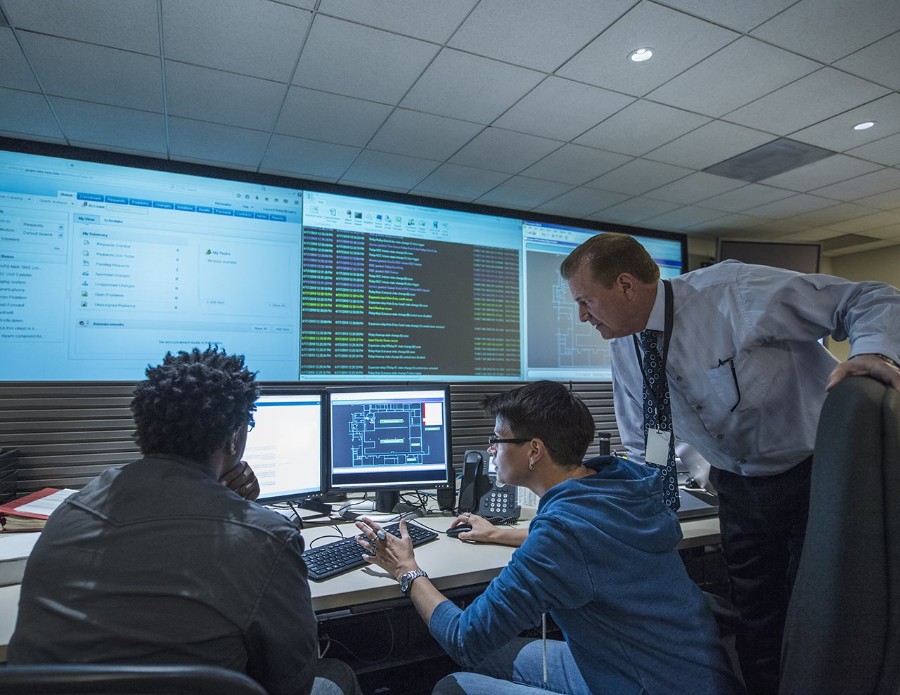Posted: Monday, October 27, 2025
The challenge of solving the cybersecurity skills gap

The need for cybersecurity professionals has never been greater.
(BPT) - The need for cybersecurity professionals has never been greater. In the U.S. alone, cyberattacks may cost the American economy over $1 trillion and globally $10.5 trillion in 2025. The frequency of ransomware cyberattacks are also predicted to increase, with one happening every two seconds by 2031.
Cybercriminals are savvy, but the lack of talent in the cybersecurity field is worsening the situation. Globally, industry experts calculate that nearly 5 million additional cyber defense professionals are needed, according to the 2024 ISC2 Cybersecurity Workforce Study.
But what's behind this deficit in cybersecurity talent? There aren't enough people going into the field. Many positions go unfilled because companies overlook the importance of entry-level positions.
Restricted access: The lack of entry points for new talent
Despite rising demand for cybersecurity professionals, early-career talent continues to be shut out. The ISC2 report found that almost a third (31%) of surveyed organizations have no entry-level (0-1 year of experience) cybersecurity professionals and 15% have no junior-level (1-3 years of experience) personnel.
There's plenty of entry-level and junior-level talent. However, industry leaders require years of experience for entry-level roles. In fact, the study reports that 62% of teams had open roles, but hiring managers were focused on finding only mid-level to advanced roles.
"If industry leaders continue to restrict entry-level opportunities, the talent shortage will only get worse," said Fred Kwong, VP and chief information security officer at DeVry University. "Not only will this hinder workforce readiness, but this industry practice will deepen the cybersecurity risk across the board."
Educating and hiring the next generation of cyber leaders
To strengthen their future defenses, organizations can rethink their hiring practices. In addition to hiring entry- and junior-level talent, industry leaders can find ways to collaborate with universities to nurture the next generation of cybersecurity professionals.
For example, DeVry University's Cybersecurity Center of Excellence offers robust cybersecurity programs built on skills-based, hands-on learning models and real-world exposure. By partnering with industry leaders, the university has designed a curriculum that aims to help close the skills gap by equipping early-career professionals with the knowledge needed to thrive in today's rapidly evolving cyber landscape.
In these programs, students don't just learn about cybersecurity, they get to practice it. Last year, DeVry launched a cutting-edge cyber range platform. Powered by Cloud Range, a leading provider of cyber range training as a service, the platform offers realistic, immersive simulations that mimic real-world cyber threats. Students can practice and master analytics, investigation, repulsion, remediation and other cybersecurity techniques.
"Cybersecurity attacks are becoming more complex and hitting faster than ever before," added Shantanu Bose, Ph.D., DeVry University's provost and chief academic officer. "Learning theory isn't enough. Our curriculum is built on experiential learning, so graduates are job-ready by graduation and ready to take on professional cybersecurity roles."
As cyber threats escalate in scale and sophistication, the responsibility to close the talent gap cannot rest solely on the shoulders of industry leaders. Higher education institutions must continue to take an active role in preparing the next generation of cybersecurity professionals by aligning academic programs with real-world demands.
Through hands-on training, strategic partnerships with employers and a focus on experiential learning, colleges and universities can ensure that learners are not only educated but fully equipped to enter the workforce. Bridging the gap between education and employment is no longer optional — it's essential to building a resilient, future-ready cybersecurity workforce.
"Ultimately, securing the future depends on empowering and supporting the people who will shape it," noted Bose.
To learn more about how DeVry is equipping aspiring cyber professionals and discover its cybersecurity program offerings, visit DeVry's Cybersecurity Center of Excellence.